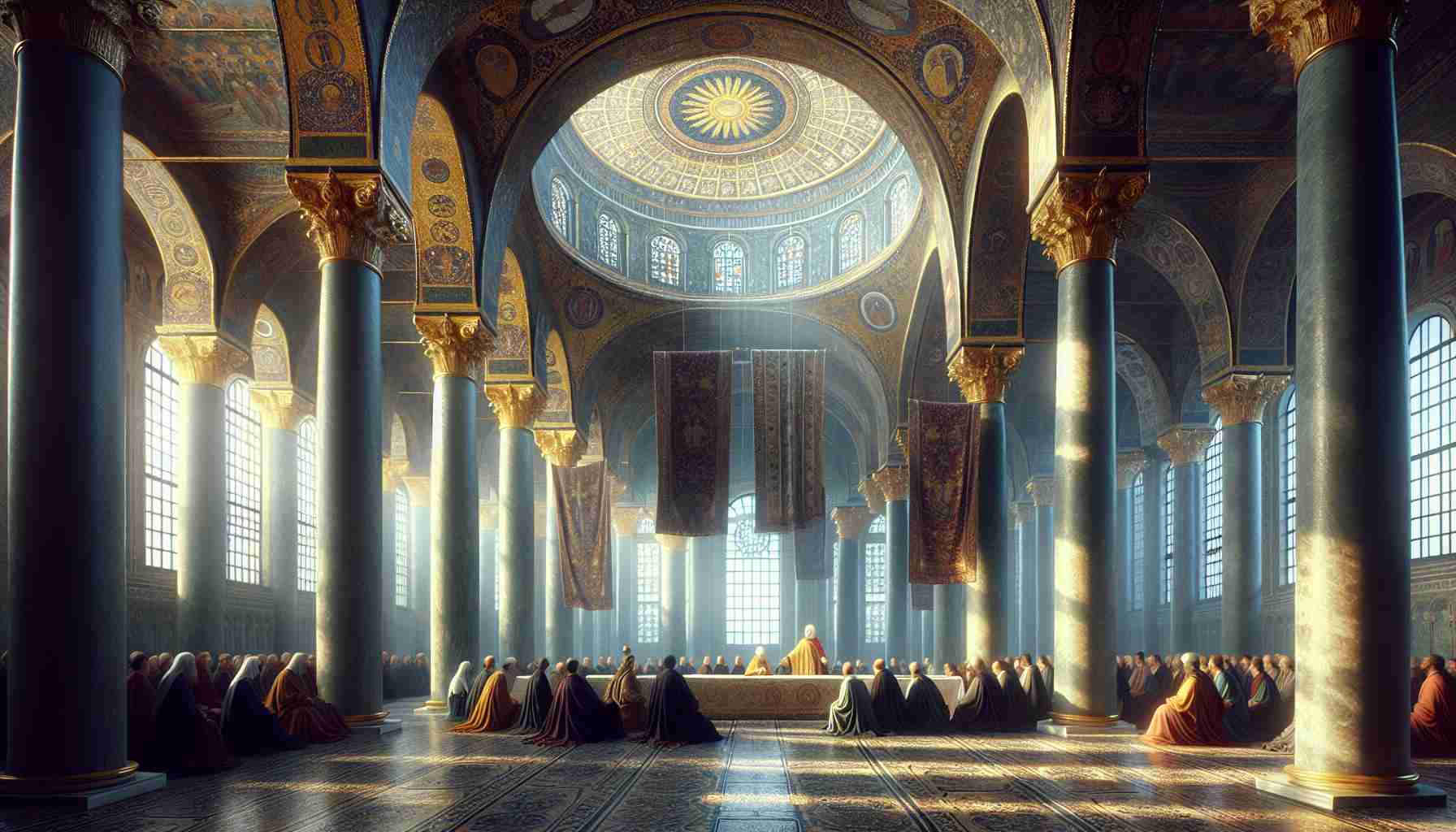

A breeze rustled the silk banners hung between marble columns of the imperial palace at Nicaea as dawn brightened Lake Ascanius. The palace, reserved for emperors and wars, now held something quieter yet more volatile—a council of bishops summoned to bind a splintering faith.
Beyond the outer court, stone sandals clacked upon tessellated floors. A hundred and eighty men robed in white wool, weathered by scars of persecution, assembled beneath painted ceilings. These were bishops from across the Empire—Fathers of the faith who had seen comrades burned or beheaded, now called not to suffer, but to speak. Among them walked a young deacon of Alexandria, narrow-shouldered and quick in stride: Athanasius.
Outside, Emperor Constantine stood atop the western steps, his golden breastplate flashing beneath a violet robe. He was not yet baptized, but had declared himself defender of the Church. His summons had gone to every province: settle the dispute that had fractured the faithful like brittle glass.
For Arius, the presbyter from Alexandria, had claimed the unthinkable—that Christ, though mighty, was not equal with the Father. That once, He was not.
A murmur passed over the chamber as Constantine entered—not to command, but to counsel. He greeted them not as soldiers, but “fellow servants of the most high God,” then stepped back to let the council begin.
Arius spoke with elegance shaped by reason. The Father alone is unbegotten, he urged. Christ, though exalted above all creation, was made from nothing. “There was a time,” he said smoothly, “when the Son was not.”
Some nodded—men who feared mystery more than heresy. Others recoiled. Old Bishop Alexander pressed a trembling palm to the table, but could not rise. Athanasius took his place.
His voice was dry, but resolute. “If He is not truly God, then we are not truly saved.” The incarnation itself demanded unity of substance. “The Word became flesh and dwelt among us,” he quoted from John. “‘I and the Father are one.’” The scarlet-clad notaries scribbled his words with haste, for something thundered beneath his tone—something eternal.
The debates blazed for weeks, scorching like Sinai’s fire. Truth, some had hoped, would come neatly folded. Instead, it arrived like a sword, dividing monks from bishops, councils from cities.
One night, incense curled above the sleepless lamps in the basilica where they prayed between sessions. A group gathered beneath the mosaic dome—eyes hollow, robes unkempt—not arguing now, but seeking. Words were failing them, like nets too fragile for deep waters. They knelt together on marble, fingers to forehead, mouth to breast. God must speak where man cannot.
And then, words like rushing wind. Not new, but sure. Not invention, but revelation set in order:
"We believe in one God, the Father almighty... and in one Lord Jesus Christ, the only-begotten Son of God... begotten, not made, being of one substance with the Father..."
Some wept as the phrases were spoken. For those who feared the faith might fracture, this creed was stone beneath their feet.
Arius refused. A few followed him into exile.
The rest signed.
Constantine, whose sword had halted earthly wars, knew the cost of enemies. But here, unity—deeper than politics—had been forged. He ordered the creed copied, sealed, and carried forth like gospel. And so it was.
In years to come, Athanasius would be driven from his church five times. Imperial favor would shift like sea wind. Yet the churches rang out with the same confession, sung in chants by monks in stone towers, whispered by dying soldiers in mud-caked armor: of one substance with the Father.
The palace at Nicaea stands no longer. Grass creeps between its broken columns. Yet beneath the ruins, stone foundations linger—unchanged, unmoved—like the creed itself.
For when truth was questioned, the Church did not invent it. It remembered it.
As the Lord said in John’s gospel, “I and the Father are one.” And through the blinding heat of words and council and conviction, the Church saw it clear:
Christ was not a created thing. He was the Light before the sun.
Faith, tested by wisdom and sharpened by fire, had grasped again what neither time nor emperor could dissolve:
The Son is true God from true God.
His kingdom shall have no end.